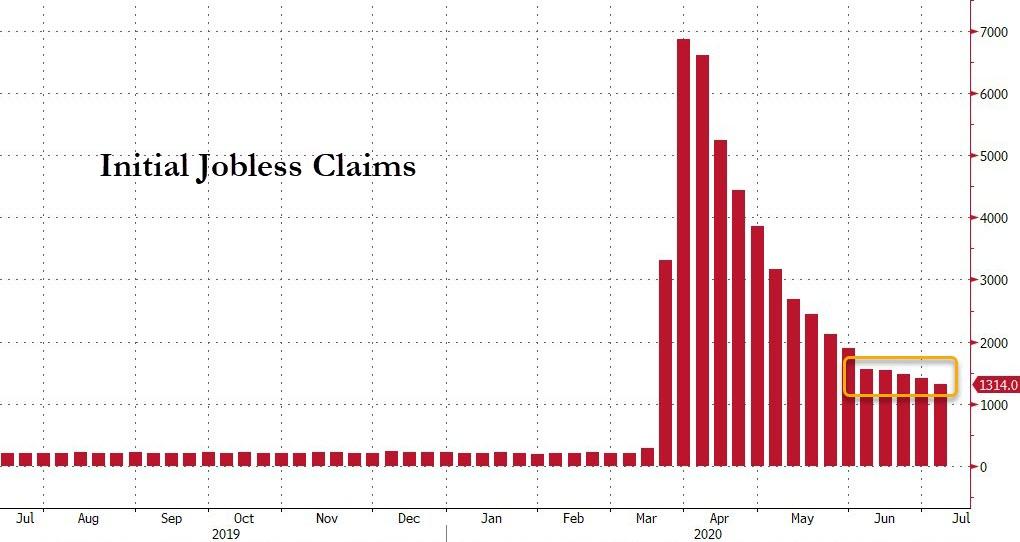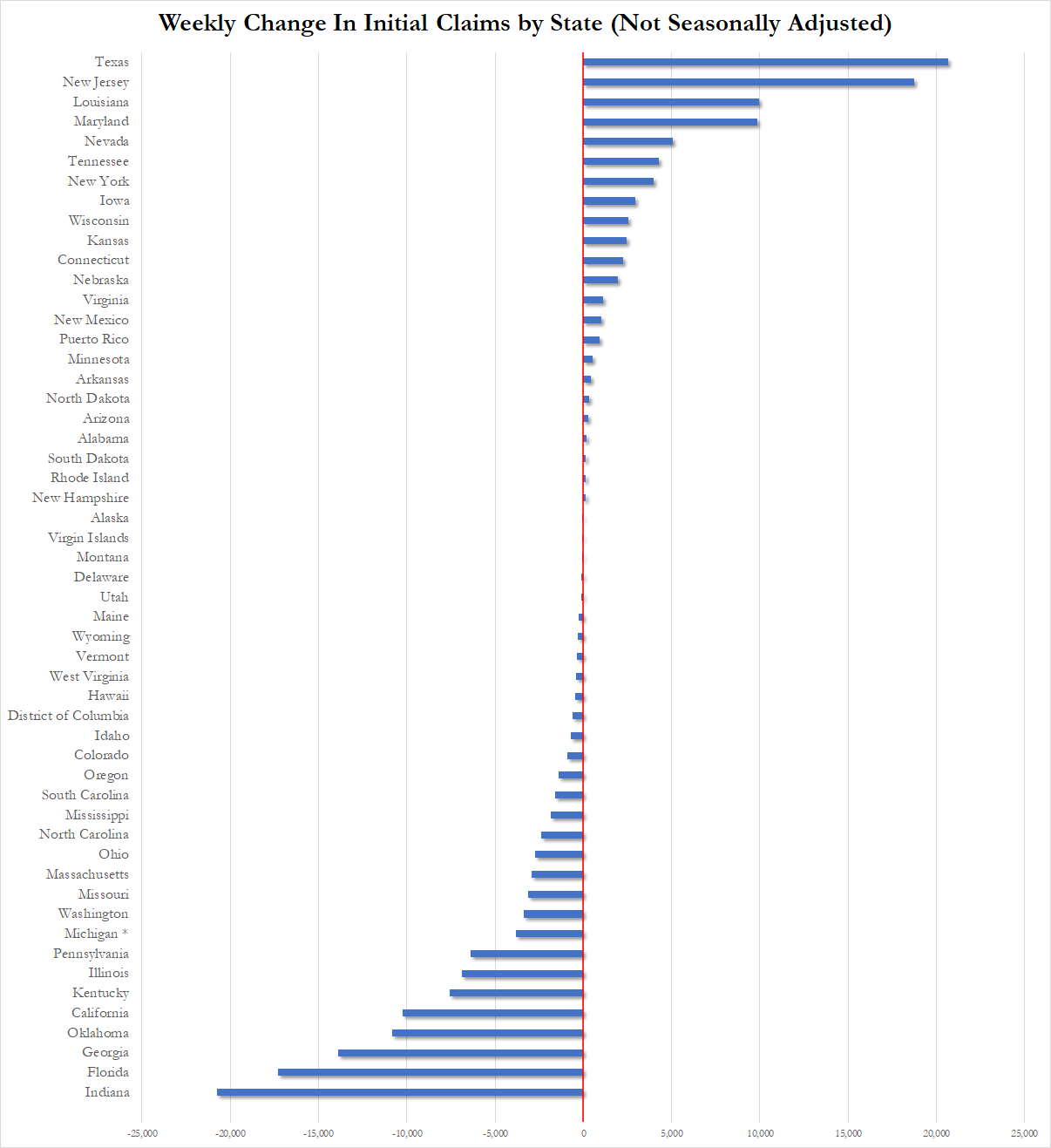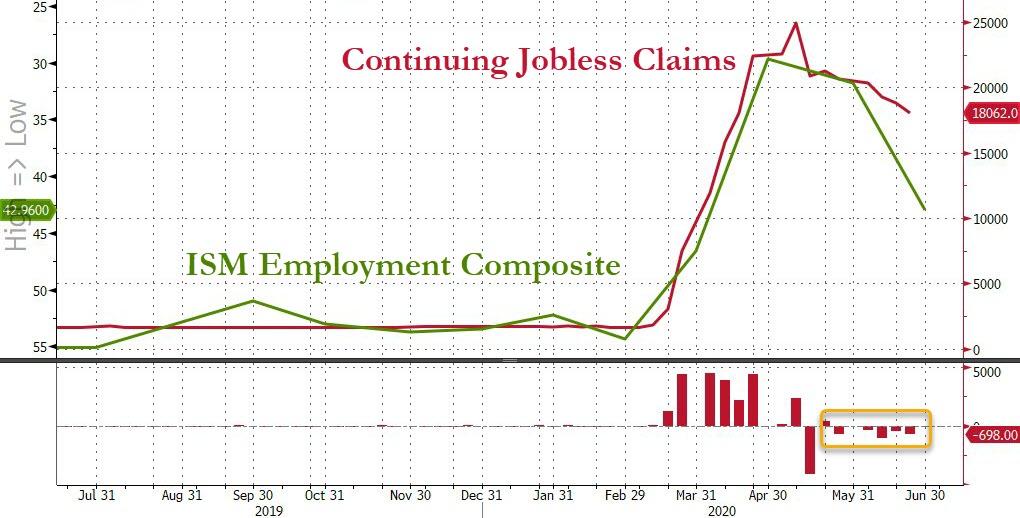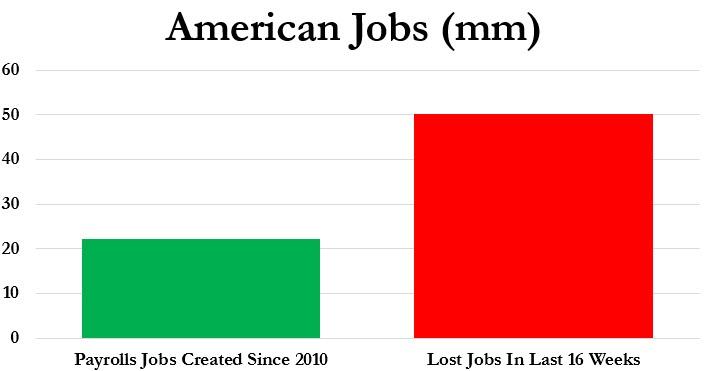Almost 50 Million Americans Have Now Filed For First-Time Jobless Benefits Since Lockdowns Began
Tyler Durden
Thu, 07/09/2020 – 08:34
Despite the hope-restoring nonfarm payrolls “recovery” and the over-hyped bounce in retail sales (ignoring the lack of ‘V’ in industrial production) and ‘soft’ sentiment surveys (which are biased by their nature as diffusion indices to bounce back hard), for the sixteenth week in a row, over 1 million Americans filed for unemployment benefits for the first time (1.314mm was slightly better than the 1.375mm expected).
Source: Bloomberg
Texas, New Jersey, and Louisiana suffered the biggest increases in jobless claims in the prior week…
That brings the sixteen-week total to 49.993 million, dramatically more than at any period in American history. However, as the chart above shows, the second derivative is slowing down drastically (even though the 1.314 million rise this last week is still higher than any other week in history outside of the pandemic)
Continuing Claims did drop very modestly but hardly a signal that “re-opening” is accelerating! And definitely not confirming the payrolls or sentiment data…
Source: Bloomberg
And as we noted previously, what is most disturbing is that in the last sixteen weeks, far more than twice as many Americans have filed for unemployment than jobs gained during the last decade since the end of the Great Recession… (22.13 million gained in a decade, 49.993 million lost in 16 weeks)
Worse still, the final numbers will likely be worsened due to the bailout itself (and its fiscal cliff): as a reminder, the Coronavirus Aid, Relief, and Economic Security (CARES) Act, passed on March 27, could contribute to new records being reached in coming weeks as it increases eligibility for jobless claims to self-employed and gig workers, extends the maximum number of weeks that one can receive benefits, and provides an additional $600 per week until July 31.
Finally, it is notable, we have lost 378 jobs for every confirmed US death from COVID-19 (132,309).
Was it worth it?
The big question remains – what happens when the $600 CARES Act bonuses stop flowing?




